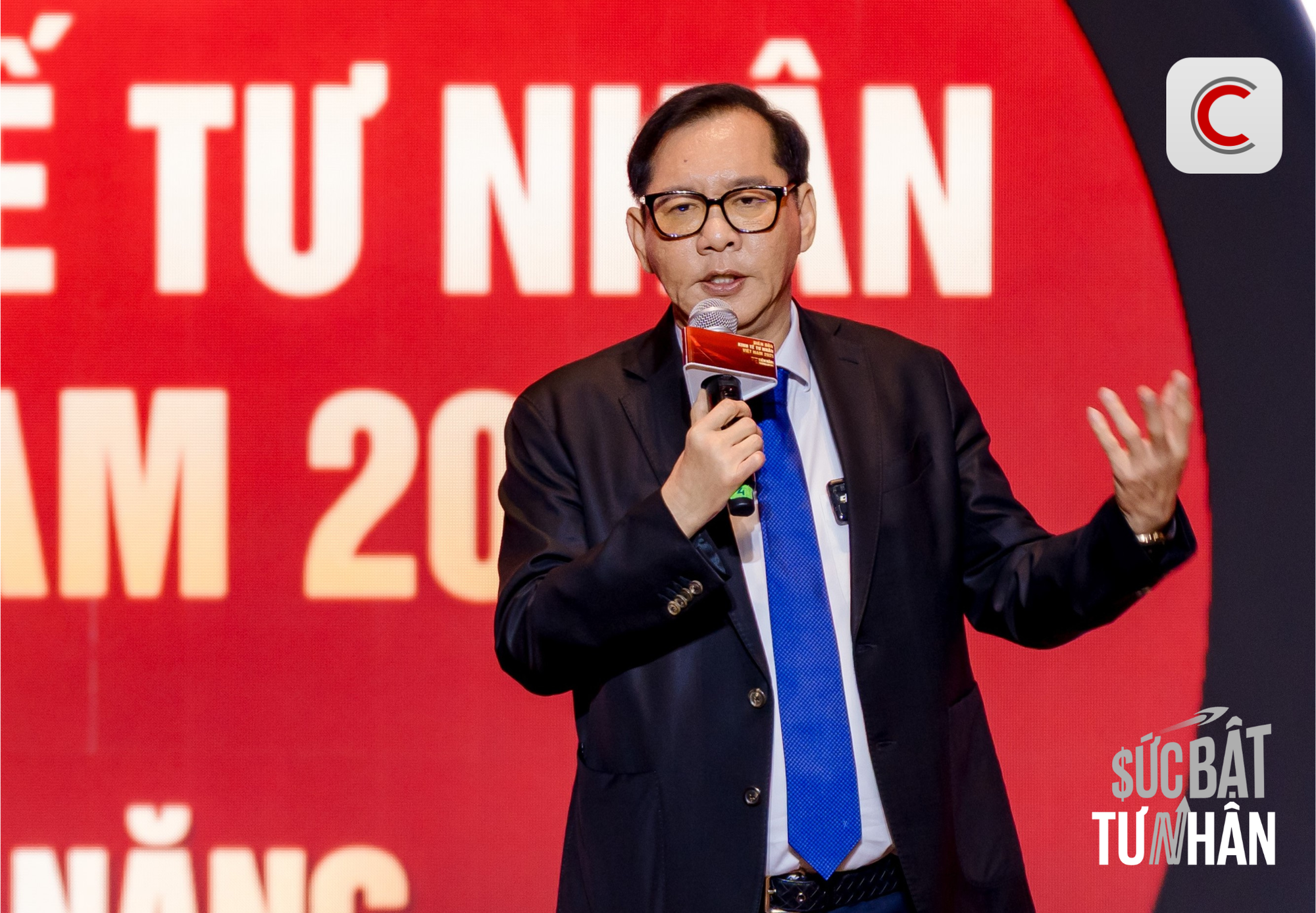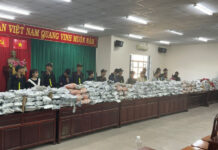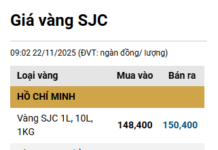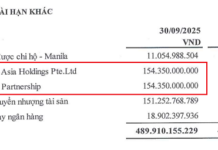
On August 22, the Vietnam Young Entrepreneurs Association organized a local dialogue for the Vietnam Private Sector Forum 2025 (VPSF 2025) in the South-Eastern region, with the theme “Promoting Innovation and Integration of the Private Sector in the Digital Age.” The dialogue was hosted by the Ho Chi Minh City Young Entrepreneurs Association.
At the dialogue, Mr. Tran Le Nguyen, a founding member of the Ho Chi Minh City Young Entrepreneurs Association and founder and Vice Chairman of Kido Group, shared his insights on enterprise digital transformation.
Mr. Tran Le Nguyen believes that nowadays, both large and small enterprises need to gradually embrace digital transformation for better management. Secondly, he emphasized the importance of marketing to reach consumers and build a strong brand for long-term sustainability.
Recently, the Kido Group has ventured into two new sectors beyond food. The first is E2E, an entertainment shopping channel that has been operating for almost two years and is now among the top channels on Vietnam’s TikTok platform. It is considered a multi-channel network (MCN) for numerous products, not limited to those of the Kido Group.
Kido has also partnered with a technology association in Zhejiang (Hangzhou), known as the “Silicon Valley of China,” home to leading tech companies such as TikTok, Tencent, Taobao, and JD.com.
Kido has brought in tools to support all businesses and has collaborated with television stations like HTV and VTV to help enterprises promote their products effectively.
Previously, advertising on VTV was expensive. However, with the adoption of AI and digital transformation, businesses can now leverage technology to build their brands and market their products more efficiently. By partnering with leading companies in Zhejiang, they can access a powerful ecosystem.
“The official launch in the Vietnamese market is expected in October,” Mr. Nguyen revealed.
He mentioned that the tools will utilize special effects, reducing the time and cost of TVC production significantly. Instead of the usual 2-3 months and a tenfold cost, these tools can cut the production time to just 2-4 weeks, with costs lowered to 20-30% of the original.
Regarding e-commerce, Kido has collaborated with partners to develop AI avatar tools to build brand and personal images. These AI avatars can work 24/7 to sell products across various channels without the need for specialized knowledge or KOC/KOL recruitment.

AI can replace KOLs in selling products. AI-generated illustrative image.
The Kido Group, established in 1993 with a capital investment of 1.4 billion VND, was formerly known as Kinh Do Construction and Food Processing Company. Founded by brothers Tran Kim Thanh and Tran Le Nguyen, the company initially focused on confectionery.
After selling the confectionery business to Mondelez International in 2014, Kido shifted its focus to essential food products like cooking oil and ice cream. The group owns well-known brands such as Tuong An, Marvela, Merino, and Celano.
Kido has invested in and acquired companies to expand its product portfolio, recently including Tho Phat Baked Goods.
In 2024, the Kido Group recorded 8,323 billion VND in net revenue and 66.8 billion VND in after-tax profits. The group aims for 13,000 billion VND in net revenue and 800 billion VND in pre-tax profits in 2025.
On the company’s website, in a message to shareholders, Mr. Tran Kim Thanh, a founding member and Chairman of the Kido Group’s Board of Directors, wrote: “In addition to our existing strengths and foundations, Kido has planned a significant revolution, reforming internal operations and external market strategies. We aim to enhance competitiveness, expand our food product portfolio, accelerate digital transformation, and strengthen risk management.”
“Our top priority is to ensure Kido’s survival and overcome these challenging times by all means,” emphasized Mr. Thanh, adding that M&A will remain a strategic focus for Kido’s robust growth in essential food products.
From the 20-Year Non-Obsolete ID Chip: The “Gold Mines” of Vietnam’s Semiconductor Industry
The domestic market demands a shift towards simpler chip applications for IoT, automotive, and industrial devices.
The Perils of Legalized ‘Virtual’ Land Prices: As the Real Estate Market Heats Up, Homebuyers Face Challenges
Despite the lack of infrastructure in many areas, land prices remain high. Notably, there are signs of speculation and price manipulation in certain regions, where artificially inflated values are then used as a basis for official land pricing. This essentially legitimizes these “illusory prices.”
“Sumitomo and BRG Join Forces to Develop a $4.2 Billion Smart City in Hanoi”
The Japanese conglomerate, Sumitomo Corporation, in collaboration with BRG Group, is set to embark on a monumental journey with the development of a $4.2 billion smart city project outside Vietnam’s capital. This long-awaited initiative underscores the Japanese giant’s unwavering faith in the country’s real estate sector and its potential in the Southeast Asian region.









































